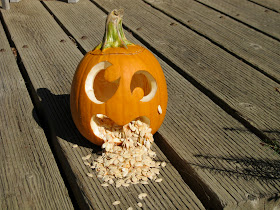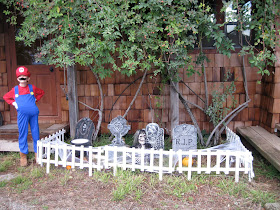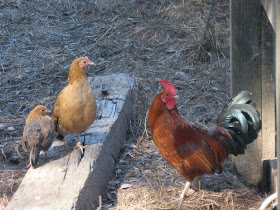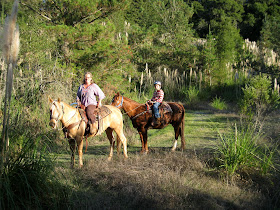by Laura Crum
You
don’t expect an older, solid horse that you have ridden for years to suddenly
decide to buck you off. But such were the surprised words of a friend of ours
the other day, when his older, solid rope horse broke in two and bucked the guy
off in the course of a roping run. And yet, as our friend admitted later, this
was actually pretty predictable, as such incidents often are.
Because
this horse, like many horses, was/is a touch cinchy, and our friend, who had
arrived late at the roping practice, had dramatically shortened his usual warm
up routine with the horse, and basically pulled the cinch tight, loped a few
circles and went on to make a run. Which didn’t work out. (The guy was fine, by
the way.)
This
got me thinking of other times when I’ve seen friends get bucked off, and the
times I’ve been bucked off myself. I’m not talking here of coming off when a
horse spooks or jumps, but the times when a horse has bogged his head and
bucked until his rider came off, which is something quite different. I’m pretty
good at riding spooks and sudden jumps, but a horse that has truly dropped his
head and gone to bucking will dump me every time.
The
usual cause of such bucking is precisely what happened to my friend. Not enough
warm-up on a cinchy horse before the horse is asked to exert himself. And this
really is pretty predictable. Flanigan, probably the best horse I ever rode,
was cinchy, and required a long, careful warm-up which involved tightening the
cinch in stages, much slow work, and some fast work before he was asked to make
a roping run. Otherwise, he bucked.
I
had a healthy respect for his bucking, so I always warmed Flanigan up
carefully. But my friend, Wally, who was partners with me on the horse, was a
tougher sort of cowboy, and though he TRIED to warm the horse up well--he
always intended to, mind you--if he arrived late at the roping and the first
pot had started, well, he’d just go ahead and make a run whether Flanigan was
properly warmed up or not. And this didn’t always work out so well.
I
will never forget one particular day at the Oakdale roping arena. Wally had
arrived late, warmed Flanigan up briefly, and had to make a run. Flanigan
“broke in two” right after Wally had roped the steer and bucked Wally off.
Wally landed smack in front of the heel horse, who ran over the top of
him-didn’t touch him with a single foot, but Wally remembers looking up at the
horse’s belly and thinking—this horse isn’t a QH, he’s a paint. He’s got a big
white spot on his belly. Not something I’d probably have noticed at that
moment, but as I said, Wally’s way tougher than I am.
Anyway,
Wally got up from the dirt, caught Flanigan, and led him over to me (we were
partners on this horse). “Where’s the horse trader,” Wally said. “I’m selling
this SOB right now.”
“Over
my dead body,” I told him. “That was YOUR fault. You didn’t warm him up.”
Well,
Wally and I didn’t sell Flanigan, and he went on to be the best horse either
Wally or I ever rode. We both won on him at roping (Wally far more than I), and
I rode him on many, many pack trips in the Sierras, where he was a true rock
star. He was always cinchy and
needed his careful warm-up—when he was twenty years old he bucked with Wally on
the first steer of the day. But I truly trusted this horse, who, by the way,
never bucked me off. When I decided to take my six month old baby for his first
ride, the horse I chose was Flanigan. (We kept Flanigan until he died—of an
inoperable colic at 21 years old).
So,
I’m thoroughly accustomed to dealing with a cinchy horse that needs a lot of
warm-up, and my buddy who got bucked off last week ruefully acknowledged that,
“Yeah, I should have warmed him up better.”
But
there are other sorts of buckers. I think of Breeze, a horse I broke and
trained when I was younger. Breeze was an easy colt to break and never gave me
any trouble. He seemed cooperative about everything, if a little lazy. I
started him as a three-year-old and all went well. As a four year old, I
continued his training, and, at this point, I started asking this horse to move
a little faster and try a little harder. I would work cattle on him, and when
he didn’t move quickly when the steer moved, I would get after him a little.
(For those who don’t approve of this, I can only say that this is how 90% of
all cowhorses are trained, and I was doing as I had been taught by the
professional trainers I worked for—I might do things differently, now.)
Anyway,
lazy Breeze seemed to be getting it. He started to “fire,” that is, move
quickly with the cow when the animal moved. I was pleased with his progress. I
even thought of buying him from my uncle, who had raised him and owned him.
But…
I
ran into the professional trainer who had trained and shown this colt’s mother
and brother. The brother had been a big winner for the trainer, and so I asked
the guy what he thought. Should I buy Breeze?
The
trainer looked at the ground and didn’t say anything. I know enough about
trainers to know that they don’t like to talk a horse down that’s in their
barn. So I said, “I’m seeing that you wouldn’t buy him.”
This
trainer was a friend, and he looked me in the eye. “That horse’s brother is a
nasty SOB,” he said. “Yeah, I won a lot on him, but that horse was a real pain
to deal with. And the mother was the same.”
So,
OK, I didn’t buy Breeze—but I kept riding him. And he seemed like a real nice
horse, just lazy. I kept getting after him to get him to try a little harder,
and one day I found out what that trainer had meant. With absolutely no
warning, Breeze bogged his head and bucked me off hard. I was Ok—I got back on,
I kept training this horse. But I was a whole lot more careful after that.
Breeze
tried to buck me off several more times. When my uncle started riding him, he
bucked my uncle off. He eventually made a rope horse and got sold to a rancher.
But the interesting thing? Breeze had five full brothers and sisters. They were
trained by different people—not me. Every single one of them was a “coyote”
bucker—a horse that seemed cooperative, gave no warning, and would suddenly
break in two and buck until the rider was dumped. It was genetic, as my trainer
friend had implied to me when I asked about buying Breeze.
So
that’s another sort of bucker—and it’s a sort I never want to deal with again.
Fortunately, my riding horse these days is gentle. Crowhopping (which I don’t
mind) is the worst he’ll do. (To me, crowhopping is bucking where the horse
doesn’t put his head down.) And my life is plenty exciting enough taking easy
trail rides with my son on our gentle horses.
So,
anybody else ever dealt with a bucker? I’d love to hear your insights.
And for those who would like a free electronic copy of my
first mystery novel, “Cutter,” set in the world of cutting horses, I will be
offering a free Kindle edition starting this Weds, and ending this Sunday. I’m
a newbie at this Kindle stuff, and I’m not sure if you have to be a member of
Amazon Prime or not to get the free copy, but I did my best to get it up there
for free. So if you have any interest in checking out my mystery series
featuring equine veterinarian Gail McCarthy for free,
here is the link to buy
Cutter—now 99 cents, but free this coming Weds, October 24th, through Sunday, October 28th. And below is the
link to a review of Cutter by Dom (A Collection of Madcap Escapades, listed on
the sidebar), who is a horse trainer and a fine writer herself. I think this
review gives a very good idea of what the book is like.
http://harnessphoto.blogspot.com/2012/08/book-review-cutter-by-laura-crum.html











































